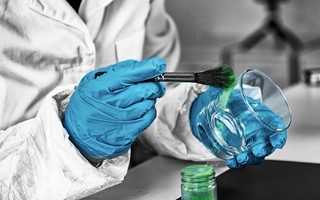News April 03, 2020 5m
Like every other part of our social fabric, our criminal justice system is suffering from the necessary restrictions imposed by the need to try to minimise the effects of Covid19. The attention of hard-pressed police is being partly diverted elsewhere, the work of legal teams is fragmented, and the courts are disrupted. It is anyone’s guess how this will all play out and what consequences there will be for the administration of justice in the medium to long term. But one thing is certain, bottlenecks and backlogs in all parts of the system will inevitably develop or worsen, and this will impact the delivery of timely, good quality justice. So the trick will be how to limit the damage by keeping things running as smoothly as possible, and recognising where new or exaggerated dangers may lurk so that they can be dealt with effectively.
Independent reviews of prosecution scientific evidence are more important now than ever.
As forensic scientists in the Criminal Justice System, we work either for the police - when it becomes apparent a crime has been committed, or for the defence when someone has been charged with it and it becomes clear that the prosecution is intending to present forensic science evidence as part of its case.
Much of the police work we do is conducted either out at the crime scene or in the laboratory as we examine in great detail items collected from the scene and/or from victim or suspect for anything that might provide a link between them. Much of this work obviously cannot be conducted from home and the extent to which it will be impacted by this crisis will therefore be much the same as for other key workers.
Advising legal teams acting for defendants about the strengths and weaknesses of the evidence against them is rather different. Much of this work can be done on the basis of a paper exercise and it therefore lends itself far better to remote working. This type of work will become increasingly important as any shortcuts taken by the police – for whatever reason and however understandable, in the scientific work they commission are likely to have a significant impact on the extent of results and the conclusions that should properly be drawn from them. But the subtleties of all this may not be apparent to lawyers, judge and jury.
The challenges faced by investigators were difficult enough before the virus struck, when cuts to police budgets in the name of Austerity were already increasing the likelihood of miscarriage of justice involving forensic science through, for example:
- Fewer items being submitted for scientific scrutiny and fewer tests being conducted on those that were. On the basis that you only find what you look for, this risks providing an incomplete picture from which it is easy to draw the wrong conclusions – a sort of self-fulfilling prophecy.
- Fragmenting the scientific effort by splitting it between the burgeoning in-force police laboratories and traditional external supplier labs to the extent that no one scientist has the full picture and is able to draw coherent conclusions.
- Patchy accreditation particularly in the newer, in-force laboratories which inevitably places a question mark over the accuracy, reliability and detail captured in the results forming the basis of the evidence. This is unlikely to change unless and until the Forensic Regulator gets her long promised statutory powers.
- Increasing use of Streamlined Forensic Reports (SFRs) which are strong on fact but light on, or completely devoid of, contextual interpretation. This can easily spell the difference between strong evidence, and no evidence at all.
- All compounded by long standing, chronic under funding of Legal Aid checks of the prosecution’s evidence by independent scientists instructed on behalf of the defence – the critical safety net to ensure sound science and interpretation are being delivered.
- Take for example what appeared to be a relatively straightforward allegation of rape. Intimate swabs were taken from the complainant, together with the knickers she was wearing at the time, and the bottom sheet from the bed on which the offence was supposed to have occurred. A semen stain was detected on the sheet which generated a full DNA profile matching the DNA of the defendant. Traces of semen were also detected on the complainant’s swabs and knickers. This was presented as strong evidence to back up the complainant’s account.
But what wasn’t recognised until the case was independently reviewed by one of our scientists was that:
- The stain on the bedsheet was of neat semen, and not mixed with vaginal material to represent the residues of sexual intercourse.
- The traces of semen on the complainant’s intimate swabs and knickers, which hadn’t been profiled, looked as though they were old – ie. what remained of some previous activity.
- Information in papers with which we had been supplied clearly indicated that the defendant had been sleeping in the same bed for the previous two weeks.
- So, all in all, it looked as though the scientific findings were neither here nor there in the context of the case.
The scientist arrived at court a few minutes late, to discover that the case had already been dismissed. But what might have happened if the evidence had not been reviewed? And what happens in all those other cases where there is no such review? And how much more likely is this to happen with the additional pressures the virus is putting on our social systems? And with no one, apart from scientists like ourselves, being any the wiser?
But hope springs eternal, if the overwhelming response to the announcement of our latest webinar on DNA evidence is anything to go by. It seems that working from home/avoiding the need to commute has some benefits if it allows a bit more time for contemplating some of the broader issues affecting criminal justice. These certainly include the critical importance of checking the prosecution’s forensic science evidence, and not just accepting it at face value however straightforward it might seem. And this is one thing that can carry on - virus or no virus, and does not need to be curtailed or develop into an unhelpful backlog.
Dr Angela Gallop CBE
To find out more about our DNA services offered by Forensic Access fill-in our online contact form or Tel: 01235 774870 to speak with our team.


